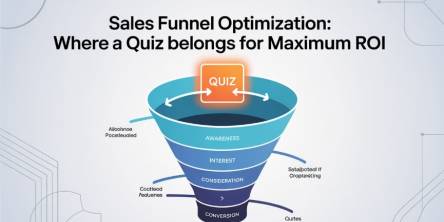How Artificial Intelligence is Changing the Dynamics of Software Testing

Software testing is a crucial process that ensures customer satisfaction in an software. It is the only premeditated way in test automation where an software can be observed under certain conditions where testers can be familiar with threshold and the dangers active in the software implementation.
Tests helps you to safeguard and software against potential application fail overs which can prove to be detrimental to the program and the organization in the future. Software debugging can essentially be accomplished once an application has been thoroughly tested.
Examining, however, is slowly shifting to greater automation to ensure maximum accuracy in the journey towards digital transformation. Within a put money to make the software failsafe, we are turning more and more towards Artificial Intelligence (AI). Since testing increasingly moves towards greater automation, we may be turning over almost all of it to Artificial Intellect (AI).
This categorically indicates that rather than manual tests done by humans, we are slowly moving towards a scenario where machines will take over writing and execution of test codes. With little human being input, however, will be required to help machines 'learn' and improve themselves.
AI is the new buzzword which is slowly but surely spreading its footprints in every major industry. Essentially put, AI is technology of making computers perform tasks that would have required human intellect in a traditional scenario. gives machines the cabability to process information about its environment, perform 'intelligently, ' and learn to adapt to all of the changes.
We can now feed the pc with a huge amount of data to acclimatize as per a set of inputs so that it can train to recognize habits and logic and consequently make the valid interconnection between similar input and output pairs.

Machines are now learning faster than ever given the latest technological advancements. The computer are now able to easily analyze copious levels of data, form patterns with it and make effective connections by on the own with the aid of some established algorithms.
It truly is through machine learning that Facebook customizes the content by deciding which stories would be most relevant to a certain user and modify the newsfeed accordingly. Websites like Amazon and Netflix use machine learning to deliver targeted advertising and content to consumers by using enormous amounts of information based on the net pages that the customers visit, or the actual search for, and what they buy on the platforms.
Equipment Learning has transcended quite a distance with people using it to identify cancerous tumors and driving cars without a human, it is now paving the way for AI to find a more robust foothold in literally every industry. As AI commences to gain ground, techies across the globe are finding ways to support their potential in the area of software testing. That is merely an issue of time when training applications to recognize problems for faster and even more efficient tests becomes a reality.
AI bots can effectively talk using human inputs and can be trained for further sophisticated tasks like testing software. AI could prove to be extremely beneficial in plugging the gaps of inadequate infrastructure for tests results, high failure rates and costs to improve the efficiency in the assessment processes.
Why do we Need AI in Software program Testing?
Software testing is a procedure that points to a very fundamental aspect in the area of development. However, many a time developers are not able to bring out an exhaustive assessment of an application anticipated to the paucity of time and resources. The moment this occurs one can argue the need for something that could smartly identify areas that more elaborate and focused attention from the aspects that could be handled through automation based on recurring patterns.

Software testing usually takes up the most amount of time, individual resource, and capital. And with developers seeking faster deployments with inadequate structure, AI is the right way forward. Since 80% of testing is merely a replication of the checks the software already possess,
AI is better equipped to automate it and take it on with efficiency rather than a human specialist which needlessly inflates costs and effort. It might be an improved practice if a persons cleverness and effort used in identifying the application problems by creating unique and ground breaking test environments.
Consequently, it is the most suitable to leave the repetitive work to the AI-powered automation which leaves only 20% of the testing functions to human creative and thinking ability. This would ensure more foolproof results because hand-crafted testing not only requires comprehensive human several hours but is prone to inaccuracies and inconsistencies. As a result, manual testing faces scalability issues, requiring the management of several machines to run.
To the contrary, AI bots-based testing requires very little maintenance and can handle finding new paths through the product on their own. Software testing is merely the right field for making use of AI as testing, whether manual or automated. This kind of scenario exists because screening incorporates lots of individual and machine-generated data. With industries waking up to AI, developers are considering it to facilitate decision making, drive automation and improve efficiency in the area of testing.
AI algorithms can be hugely attractive the testing industry in making a better and more productive software for the end-user. This is, yet , important to decipher using AI smartly. Algorithms that operate like an actual user being able to access automation. After that, one must identify the areas within the process that can be optimized with AI and incorporate the algorithm.
Having a smart algorithm can facilitate this process that help testers find the maximum volume of bugs. The results after that can be employed by the developers to refine the item and learn from trial and error.
Pros & Cons of AI in Software Testing
Like all things, AI in software testing comes with the share of good and bad. The biggest advertising points includes the instant feedback mechanism.
Since manual software testing is a long way off in its evolution shift to agile and DevOps, it’s simply not achievable for manual testers to give agile developers immediate assessment on how their constant inputs and alterations to the application impacted the existing user experience.
AI application can also effectively help in generating and optimizing test cases, prioritizing testing and automation, enhancing UI testing and reducing tedious analysis tasks.
Similar Articles
The frequency of software releases has reached an all-time high lately. You see, more organizations are migrating to cloud native architectures.
In 2026, Microsoft Excel continues to power the U.S. business ecosystem, supporting over 80% of financial modeling, 70% of operational reporting, and nearly 65% of analyst-driven decision workflows across enterprises.
The rapidly growing volume and speed of digital transactions have had a whole lot of implications for businesses
We live in the age of cloud computing. That's plain to see. However, what may escape many are the operational and financial challenges of managing multiple independent clusters.
Times have changed and how! Take modern technology and the fast-paced digital economy, it is driving. Given the market conditions, any company's infrastructure has become more than just a technical detail.
It has been for everyone to see that the modern digital economy is distinguished by high volume, real-time financial transactions.
Business success has become reliant on efficiency and agility of the underlying technology infrastructure. Clearly, companies now depend on cloud computing to provide seamless services while managing exponential data growth.
Hospitals operate in environments where availability and patient safety are paramount at all times. As medical supply chains expand and regulatory oversight becomes more demanding, manual tracking methods introduce delays and risk.
Every sales funnel has one core goal: turn attention into revenue as efficiently as possible. Yet many funnels leak value at critical stages—visitors bounce, leads go cold, and sales teams chase prospects who were never a good fit.









